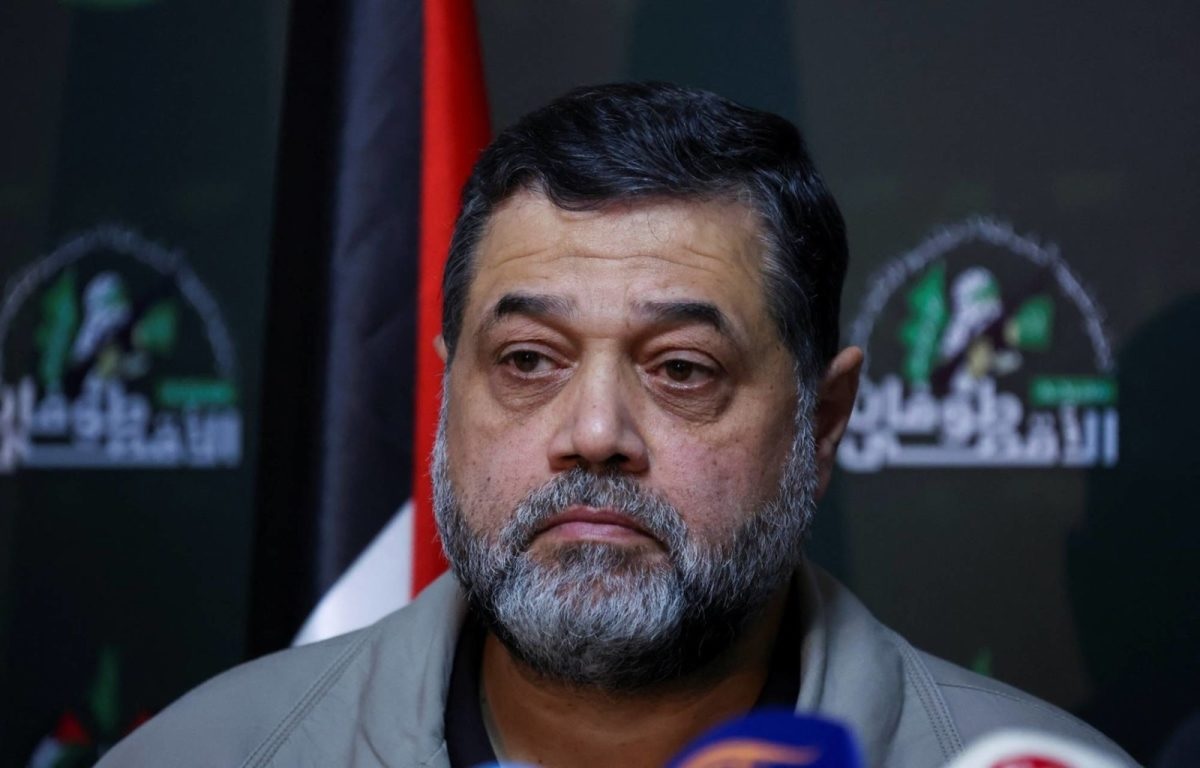Watan-Hamas Reacts to Plan for Displacing Gaza Displaced from Rafah
The Islamic Resistance Movement, Hamas, has commented on the plan unveiled to displace displaced individuals in Gaza from the city of Rafah, which includes eight provisions.
The Lebanese newspaper Al-Akhbar published a report about a Zionist project, with Egyptian and American approval and other entities, to displace hundreds of thousands of displaced persons from Rafah to new areas.
Hamas leader Osama Hamdan stated at a press conference: “We say clearly, our people do not need refugee camps. Our people need an end to aggression and enabling their return to their homes despite their destruction.”
He added: “Our people are capable of rebuilding what the occupation has destroyed, and they will build it better than before… Our people do not need charity, but they need support for justice.”
He emphasized that any agreement that does not aim to stop aggression and end the occupation is an agreement that does not achieve the goals and aspirations of the Palestinian people.
Details of the Israeli-Egyptian-American Plan
The Lebanese newspaper Al-Akhbar published details of this plan, which includes the following provisions:
- Achievement of a political-security agreement between Israel and Egypt, Jordan, and the United Arab Emirates.
- Establishment, financing, and management of new camps, with the United States paying Egypt what Cairo pledges to spend.
- Determination of the new location for the gathering of displaced persons in the western areas of the Gaza Strip exclusively, within a coastal strip extending from the Mawasi area (southwest of the Strip) to the Sheikh Ajlin area (north of Gaza City).
- The establishment of between 12 and 15 gathering points, called “camp villages,” with the largest in two spots: one in the southern Mawasi area and the other in Sharm Park near the center of the Strip.
- The total isolation of northern Gaza from the Sheikh Ajlin area and all the area north of the Gaza Valley towards the east.
- No humanitarian support activities in northern Gaza and pushing the remaining population in the north to relocate to the camp locations to receive support.
- Each “camp village” will have about 25,000 tents, some even more.
- Distribution of displaced persons to these points based on databases considering family relations or being from the same towns or neighborhoods before displacement.
- A repeat of the attempt made in Rafah and failed, by obliging people to choose representatives, whether from elders or dignitaries, to oversee the coordination process and ensure no civilian, political, or administrative role for anyone affiliated with the Palestinian resistance movement Hamas.
Emirati-Egyptian Role
The newspaper mentioned that the Israeli occupation will take charge of closing all border crossings from the Egyptian side, including the Rafah and Kerem Abu Salem crossings, and allowing the movement of trucks coming from Egypt or Jordan through the crossings located on the eastern border of the Strip.
The movement will be confined to a single line entering from the center of the Strip and then dispersing along the coast road (Al-Rasheed Street), similar to the movement of people.
Regarding aid, the countries wishing to deliver aid commit to depositing what they have under the custody of both Egypt and Jordan.
The plan includes the United Arab Emirates establishing a floating port in the area opposite Sharm Park. Aid will be unloaded and distributed there via vehicles along Al-Rasheed Street, with the aid subject to prior inspection by the Israeli occupation.
The Egyptian authorities will be involved in the process of establishing camps, setting up tents, temporary sanitation facilities, as well as water supply centers (funded by American-Saudi money).
Field clinics will be established, and the decision to evacuate the wounded from the Strip remains with Egypt, which coordinates it with the occupation forces, as is currently the case.
Cairo will send lists of those supposedly leaving the Strip, including civilians and wounded, alongside the Israeli occupation, which grants approval or not.
-
-
-
-
-
-
